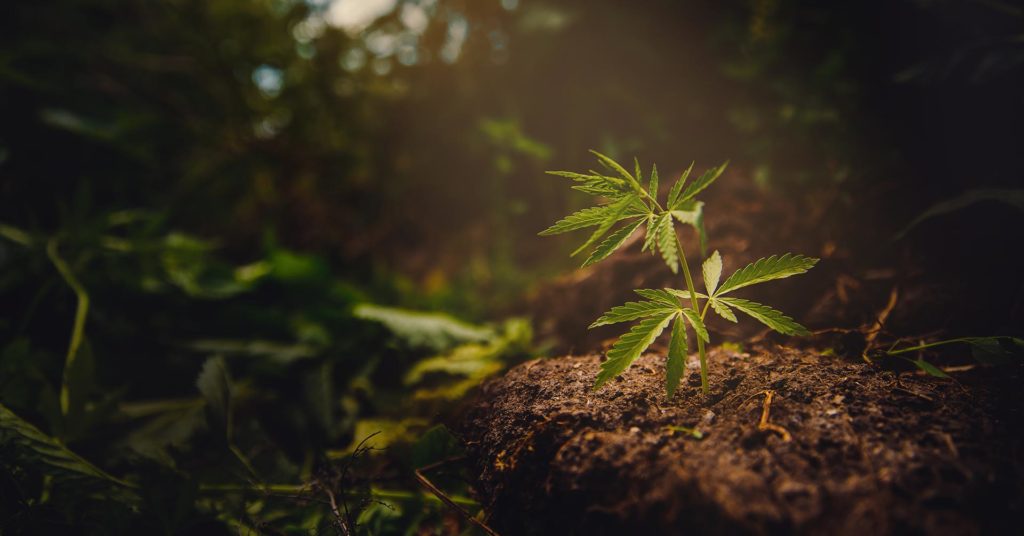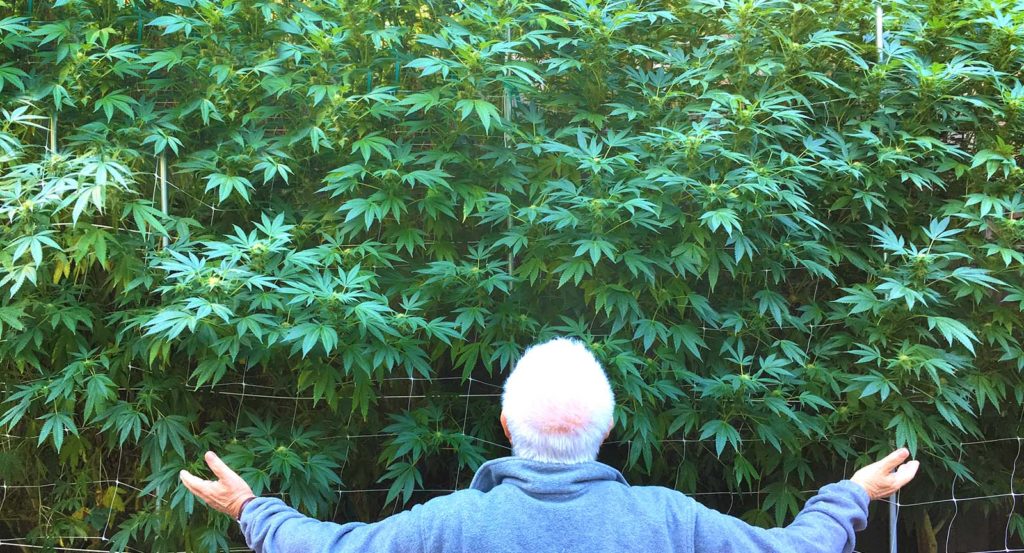Now accepting clients for New York, Maryland, Delaware, and Missouri! Please contact us if you have questions.
The Art of Cannabis Regulations: From a National Overview to a New Jersey Focus
- Keith
- March 27, 2021
The Art of Cannabis Regulations: From a National Overview to a New Jersey Focus
- Keith
- March 27, 2021


The state-legal cannabis industry is coming up on its 25th anniversary of existence and this article will take a closer look at the evolution of cannabis regulations as the industry has matured. Beginning in 1996 with proposition 215 in California, state-legal cannabis started out as a medical marijuana initiative designed to assist chronically ill and dying patients with an alternative treatment option. What has grown from these humble roots is an over $17 billion industry in the US alone which consists of a patchwork of regulations from each state that joins the Green Rush. As cannabis is still federally illegal in the United States, each state that legalizes cannabis learns from the states that have come before it. New Jersey is no different in this respect.
Related: New Jersey to Use METRC
From observing challenges that arose from California’s minimalist approach to medical marijuana regulation, states like Colorado and Washington chose to draft stricter regulations becoming the template for many states to follow. Each state has either sought to replicate, improve upon, or simply customize these regulations to meet the specific needs of their state. This has led to some interesting challenges for cannabis companies choosing to operate in multiple states.
For example, when applying for a cannabis business license in New Jersey anyone with a significant interest in the business (about 5%) must be disclosed in the application process and provide all required background information. In Michigan owners with interest and spouses that were not owners themselves had to submit all required information for cannabis business license applicants.


The Evolution of Cannabis Regulations
This post lays out the key features in cannabis regulation that are predictably similar from state to state as well as how New Jersey’s cannabis program is similar and differs. New Jersey is one of the latest states to legalize an Adult-Use cannabis market, the state’s legislation has benefitted from the experiences of states that have gone before and is addressing diversity in ownership with a top-down approach that will be discussed in the licensing section of this post. There are three main areas that we are going to focus on, and they are: Community Safety, Good Manufacturing, and Privileged Cannabis Licenses. Exploring each of these areas briefly is important to understanding the evolution of cannabis regulations as a whole as well as the lessons it may provide for future legalization efforts in cannabis and other plant medicine movements.
It is no secret that most states that legalize cannabis do so with an eye towards generating tax revenue by encouraging citizens to choose a regulated alternative. This has a number of benefits for the state and consumers. Consumers benefit from relaxed laws on possession, increased product safety, and increased product variety. The state benefits from licensing fees, decreased spending on law enforcement efforts, and tax revenue from legal cannabis sales. Underpinning all of this is the promise of increased community safety. The discussion about community safety and cannabis legalization and regulation may vary from state to state but there are elements of the topic that are universal.


Cannabis Regulations and Community Safety
One of the most convincing selling points for the cannabis legalization movement has been that a regulated market increases community safety by regulating who has access and who has the right to sell. This focus on community safety also provides the establishment of a framework for product standards. The hallmarks of the community safety portion of cannabis regulation fall in the three categories: possession limits and diversion, security, and product advertising and labeling. Nationally, the majority of states that have legalized cannabis for Adult-Use have placed the possession limit at 1 ounce of usable flower and a combination of concentrates or edibles equal in milligrams to approximately 1 ounce of usable flower. Possession Limits may vary but purchasing limits in Adult-Use states, also referred to as recreational cannabis states, are limited to 1 ounce of flower.
These limits are designed to prevent diversion into the illicit market and to limit product availability to minors. Diversion of products is a significant concern both for regulators and for the market because of the potential risks of having state-legal products find their way into the illicit market. Since one of the largest reasons for cannabis legalization is to eliminate the illicit market, regulations are put in place to require strict measures in security and operations to prevent these products from being sold by unapproved sources. For this reason and to protect both the community and those employed in the cannabis industry, security at cannabis facilities is very strict and taken very seriously. One measure that holds true for the majority of states is the requirement for security cameras, recording systems, backup systems, and automatic reporting to law-enforcement whenever a breach of the facility’s security has occurred. Site security is not the only community safety Regulation the cannabis industry participants have to concern themselves with. In order to sell a product, you have to be able to advertise it and brand it. In many states, and New Jersey is no exception, there are strict regulations on advertising as well as product labeling.
Advertising and product labeling come under a different portion of the umbrella of community safety. Both fall under the aspect of trying to protect children from cannabis use and exposure to the product. It is with this in mind that product advertising is very restricted in most states as well as where these advertisements can take place. New Jersey is no exception. Where New Jersey’s cannabis program stands out, is in its definitions of what counts as televised advertising where streamed content on the internet is included. Similar to many of the states that have come before it, New Jersey also requires that a company can provide proof that the audience for any particular advertising venue is 71.6% of the target age group. In short, no more than 29.4% of an audience can be composed of minors under the age to legally purchase or possess cannabis. This focus on preventing minors from accessing information about cannabis or viewing materials that would appeal to them also makes labeling and branding a bit of a challenge for cannabis companies. However, States have become better at defining what violates these commonsense regulations. Part of advertising can also be the look of a facility. A facility’s design and how it chooses to operate can impact its neighbors.


Good Manufacturing Practices and Standard Operating Procedures
Good manufacturing practices are a hallmark of cannabis regulation. States require considerable thought to be put into a facility design as well as its operations. These two elements, facility design, and operations can make up the bulk of any privilege license application materials. In all states, cannabis facilities must meet state and federal guidelines for building construction and safety, employee safety, and product safety. Where guidelines do not yet exist for product safety lawmakers, regulators, and community members cobble together regulations from knowledge about similar agricultural practices, similar infused product practices, as well as existing regulations for sales restrictions for age-restricted products.
The largest area of concern for most cannabis business owners is with their Cannabis Standard Operating Procedures or SOP’s. This set of documents outlines how the company should be run, how products are made, how inventory is kept, and how products are handled within a facility among many other concerns. In every state, the enforcement division tasked with regulating the cannabis industry is allowed to have auditors or investigators come onto the cannabis business site and evaluate whether or not the company is operating in compliance with state regulations. When an investigator finds a company out of compliance with state regulations, a statement of deficiency is served in which a company may be asked to disclose the Operating Procedure(s) that relate to the actions or conditions behind the violation as well as any relevant training that employees may have received.
Standard Operating Procedures also provide a framework to ensure quality assurance in all products manufactured or grown in the facility. As more states legalize cannabis, there has been an increase in the demand for quality assurance testing. This testing provides a measure of assurance that a cannabis product is free of adulterants, harmful chemicals, mold, and other microbial substances, as well as providing a measurement of the average potency of cannabinoids and terpenes present in the tested product. This quality assurance testing provides companies as well as consumers with greater insight into the safety of the products being sold in a state-legal market. This data is typically recorded in a state seed-to-sale software, often Metrc, which is an important aspect of the inventory control process.
Cannabis seed-to-sale software, like Metrc, is a requirement in every state-legal cannabis market. Seed-to-sale software is designed to assist in the prevention of diversion of product while also assisting companies with inventory control and management. It is designed to track and trace the product from initial propagation to final product sale in a dispensary. Typically, suspicious activity in Metrc or similar seed-to-sale software required by the state will trigger an audit of a cannabis production facility. It is at these times where having strong communication, detailed SOP‘s, and a strong solid foundation in compliance will help a cannabis company navigate this process. It is because these licenses are considered privileged that this level of scrutiny is required.


New Jersey and Privileged Cannabis Licensing
As stated above, cannabis business licenses are considered privileged business licenses. With few exceptions, most states only issue a limited number of these privileged licenses. Therefore, it is important for cannabis business owners to meet and maintain the ownership requirements for their state. While each state may have its own quirks with regards to ownership requirements when applying for a license, it is important to remember that the goal is to identify companies whose ownership can demonstrate the ability to operate a facility according to state regulations without risking diversion of product or threats to public safety. An unfortunate side effect to this level of precaution in the earliest days of the cannabis industry led to several restrictions that hampered efforts at social equity in the cannabis space. At this time, social equity has become more than a buzzword in the cannabis industry. Social equity measures in recent legislation like that of New Jersey, have been designed to address a distinct lack of diversity in ownership and management of cannabis businesses industry-wide.
3 Ways New Jersey is Addressing Cannabis Social Equity
New Jersey is making strides to address the cannabis social equity issue in their state in three ways. The first is to have one member minimum on the cannabis regulatory commission who is a member of a national social justice or civil rights group. The second is to rename the Office of Minority, Disabled-Veterans, and Women Medical Cannabis Business Development by dropping the word “Medical”. According to the report “State of the States: New Jersey March 2021” this Office’s job will be to aid in crafting licensing criteria to ensure that no less than 30% of new licenses awarded are awarded to minority, disabled veteran, or women owners. The third way New Jersey is addressing the social equity issue in licensing is by developing criteria to address diversity to promote licensing of persons “from socially and economically disadvantaged communities, and minority businesses and women’s businesses.” In short, New Jersey is putting in place a framework to actively work towards greater social equity in their Adult-Use Cannabis market. So far all of these measures are part of the law designed to create a framework for this industry.
The regulations have yet to be written for the Adult-Use market. Why is that important to note? Cannabis regulations aren’t written in a vacuum. These regulations are often the result of numerous public meetings where industry participants, activists, lawyers, and regulators will sit in a room and hammer out what the rules and regulations for the industry should look like. We pride ourselves on understanding how this process works, providing input where it’s appropriate, and informing our clients of new and evolving regulations as we become aware of them. The goal as always is to ensure that our clients are prepared to compete for these privileged licenses and operate efficient and compliant cannabis businesses.
New Jersey Cannabis Industry Opportunities
New Jersey currently presents a tremendous opportunity for anyone looking to get into the Adult-Use cannabis market there. Currently, its neighboring states have not yet legalized Adult-Use sales. This provides New Jersey with the economic advantage as well as the novelty of being first. Experienced cannabis consultants provide cannabis business owners with valuable insights, proven methods, and peace of mind. This is especially true in the privileged license application process. A typical privilege license application process in the cannabis industry can be a very stressful, labor-intensive, and expedited process. Owners and application writers generally have a very narrow window of time in which to prepare volumes of information about the owners, the business structure, operational processes, facility design, and potential community impact of a proposed cannabis business. In a competitive selection process, the importance of having experienced professionals on your side cannot be overstated. Successful cannabis business applicants all have strong application teams in common with experience in project management, content creation, strong technical writing skills, and above all else incredible attention to detail.
Psycann Advisors’ team of trusted industry professionals have the experience of long hours spent crafting and perfecting privileged license submissions under tight deadlines. With skill and passion, our cannabis consulting experts have what it takes to provide your cannabis company with its best chance at success at winning a privileged license as well as building a strong foundation for long term growth and success. Put our experience to work for your company from vision to reality.
Share This Post


Stephanie Till - Founder of Green Rush Indexed Data and the M.I.R.A. Project
Stephanie Till is a Plant Medicine Industry Historian and Compliance Specialist whose research focuses on the evolution of policy, regulations, and market shifts in state-legal plant medicine markets. She has experience working with vertically integrated multi-state operators (MSOs) and small businesses alike serving as a researcher, a compliance consultant, and technical writing including SOPs. She is the Founder of Green Rush Indexed Data and the M.I.R.A. Project.
Subscribe To Our Newsletter
More To Explore
Contact PsyCann's Cannabis Regulatory Experts To Schedule a Free Consultation
How Can We Help Your Cannabis Business Today?







